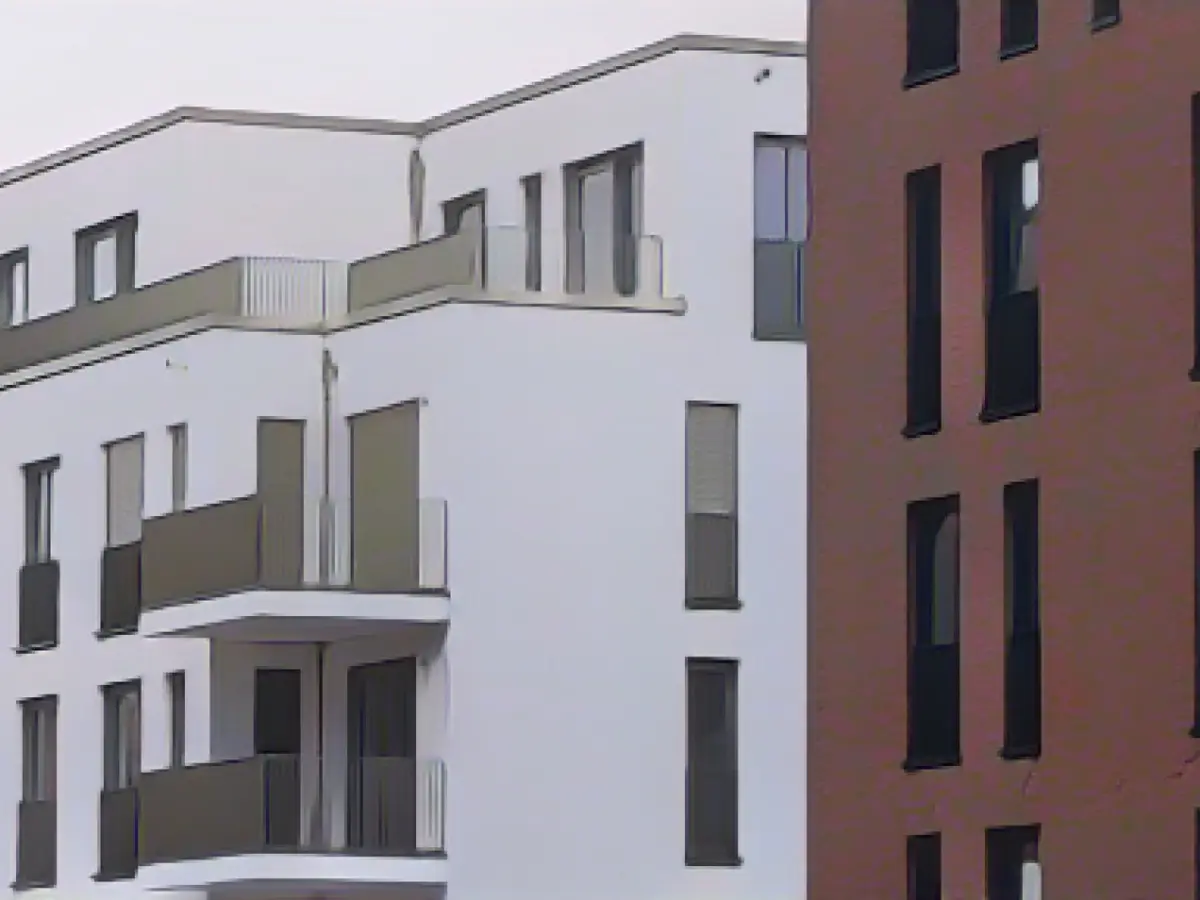Dealing with Housing Woes: Unions and Tenants Association Voice Concerns
The housing sector has been under the spotlight for two years during Germany's "traffic light" coalition, and organizations like the German Trade Union Confederation (DGB) and the Tenants' Association are far from satisfied. They've traveled to Berlin to send a clear message — it's time for a massive multi-billion-euro housing campaign. Approximately 33% of Germany's 21 million tenant households are currently struggling with housing expenses.
Stefan Körzell, a DGB board member, voiced his frustration about two years of federal apathy in construction policies. He advocated for a fresh start and suggested annual investments of 13 billion euros in a national housing campaign, strengthening local governments and reallocating profits from real estate trades.
Lukas Siebenkotten, the German Tenants' Association chief, echoed Körzell's sentiments, emphasizing the need for immediate action. He referred to the coalition agreement, which aimed for 400,000 apartments annually, with 100,000 subsidized by the government. Yet, only 25,000 publicly financed apartments have been constructed, and just around 300,000 new residences have been built during the years 2021 and 2022.
Research points towards a future shortage of over 700,000 affordable rental apartments in Germany by 2023, making it difficult to achieve 2025's housing construction targets. Furthermore, the national average rent for advertisements increased by 4% in 2022, reaching €9.66 per square meter net cold. Prices in large cities surged even higher, reaching €12.23. Rents for existing tenancies will continue to escalate by 5.5% between 2020 and 2023.
Employers and employees are both feeling the burden of the housing crisis. Businesses may find hiring challenging due to high housing costs, exacerbating a talent shortage. Conversely, employees struggle with high housing expenses.
To resolve this social and political issue, Siebenkotten suggested an immediate rent freeze and a more aggressive approach to affordable housing construction. The spiraling rental costs pose a significant challenge.
Related reading:
Governments have implemented several actions to combat the housing affordability crisis and meet their housing construction targets, though these efforts have had varied effects on rent prices and apartment availability. Here are the key actions and their outcomes:
Actions Taken
- Setting Ambitious Construction Goals: The federal and state governments established a goal to construct 400,000 new homes annually, including a substantial segment intended for lower-income families.[2]
- Efforts to Streamline Planning and Approval Processes: All major political parties agree on the necessity of expediting planning and approval procedures to reduce construction costs and boost housing supply. This includes digitalization, reducing red tape, and simplifying building regulations.[1]
- Funding and Tax Relief: Various funding mechanisms to enhance investment in housing have been proposed, such as the CDU/CSU's property-based funding or the SPD's "Germany Fund," providing equity capital to housing associations and cooperatives. The FDP advocates for improving tax depreciation within the housing sector.[1]
- Affordable Housing Initiatives: The SPD prioritizes funding for serial and modular construction, capitalizing on potential savings. The Greens advocate for simpler densification and energy-efficient renovations of existing buildings.[1]
- Rent Control Regulations: Controversial rent control regulations, like the "rent brake," remain the subject of debates. Proposals include closing property tax loopholes during transactions and enhancing the pre-emption right of municipalities for the SPD and the Greens.[1]
Impact on Rent Prices and Apartment Availability
- Rent Prices: Despite initiatives to boost housing supply, rent prices continue to rise in significant cities such as Munich, Frankfurt, and Berlin. Factors influencing this include strong demand, limited housing supply, and economic growth.[3]
- Apartment Availability: The construction sector has faced challenges, including material shortages and a scarcity of skilled labor, producing a decline in new housing approvals. In 2024, only 210,000 new housing approvals were projected, a 45% decrease from the previous year.[2]
- Mixed Results: Although there are indicators of improvement, particularly in social housing, the overall impact on rent prices and apartment availability remains diverse. The real estate industry continues to advocate for deregulation to improve the construction process and decrease construction costs.[2]
In summary, while German governments have carried out several measures to address the housing affordability crisis, progress in reducing rent prices and boosting apartment availability has been limited due to ongoing challenges in the construction sector and high demand for housing.








